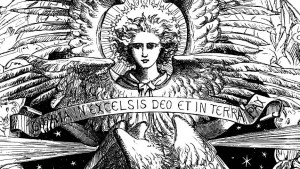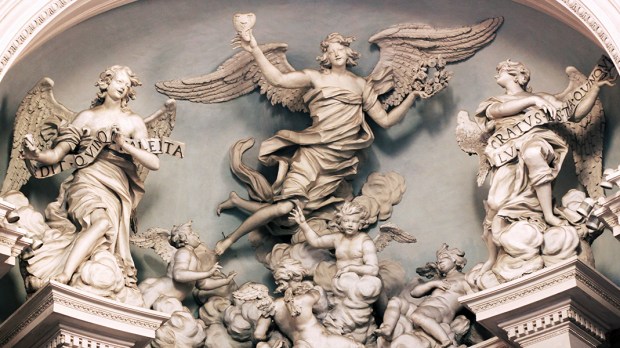Many Christians will use the Greek term doxology in various circumstances. What does it mean?
The word “doxology,” refers to a short hymn praising God, typically used in the context of the liturgy. According to the Catholic Encyclopedia, “In general this word means a short verse praising God and beginning, as a rule, with the Greek word Doxa [“glory”]. The custom of ending a rite or a hymn with such a formula comes from the Synagogue.”
In the Catholic Church, there exist two primary doxologies, “a greater (doxologia maior) and a shorter (minor). The greater doxology is the Gloria in Excelsis Deo [Glory to God in the Highest] in the Mass. The shorter form, which is the one generally referred to under the name ‘doxology, is the Gloria Patri [Glory be to the Father …].”
The Glory Be doxology is frequently used in the context of the Liturgy of the Hours at the conclusion of each Psalm that is recited. It is also used during the Rosary at the conclusion of each decade. The custom of inserting doxologies into liturgical and private prayer dates to the earliest centuries of the Church, and can even be found in the letters of St. Paul (Romans 11:36; Galatians 1:5; Ephesians 3:21; etc.).
It reminds us to always begin and end our work praising God, giving him the glory instead of ourselves.

Read more:
What is the Liturgy of the Hours?

Read more:
How someone’s poem became the greatest hymn of the Mass

